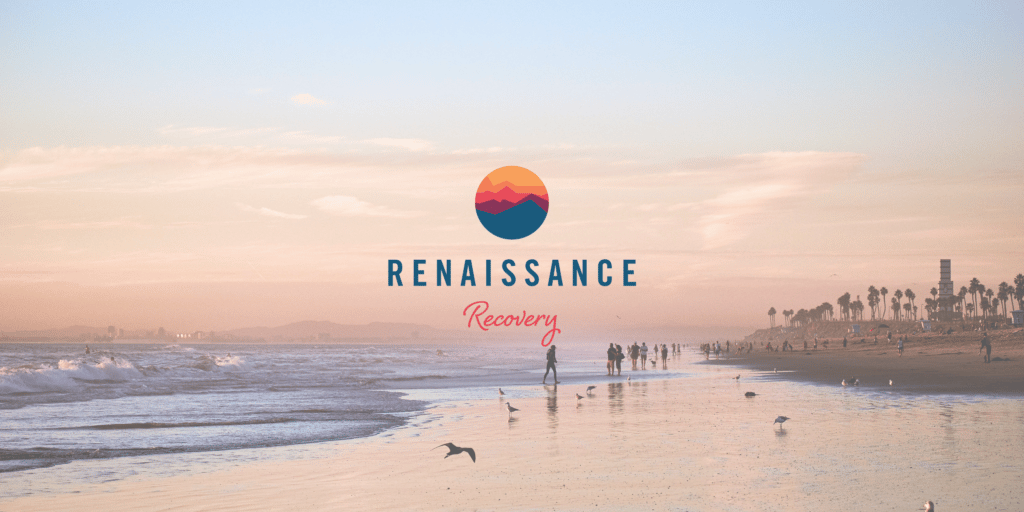Deciding to embrace a life free of drink or drugs is the first crucial step in an ongoing journey and all recovery takes on many different forms.
Depending on the nature of the addiction and the substance in question, the treatment at a rehab, like an Orange County rehab, also varies considerably.
Often, medication-assisted treatment is necessary to minimize cravings, reduce the unpleasant side effects experienced during withdrawal, and also lessen the chance of relapse. This is especially true when the addiction is more severe and withdrawal symptoms are likely to be equally severe.
Today, then, we’ll take a detailed look at what is Vivitrol and whether it is as effective as you’ve been led to believe.
Vivitrol Uses
Vivitrol is an opioid antagonist.
The core purpose of the Vivitrol shot is to help you conquer the cravings associated with the early stage of withdrawal from either opioid addiction or alcoholism.
Vivitrol is Naltrexone in extended-release form. It binds to the opioid receptors in your brain so these receptors will not be activated by further opioid use. In plain English, if you continue to take opioid pills with Vivitrol in your system, you won’t notice any effects.
As the first non-addictive, non-narcotic treatment for opioid addiction, Vivitrol is now an FDA-approved medication for this purpose. The FDA approved Vivitrol for treating alcohol dependence back in 2006.
Until recently, opioid addiction has customarily been treated with methadone or suboxone. As recently as May 2017, the US Secretary of Health and Human Services, Tom Price, made an unfavorable statement about these treatment options. Price stated that they were merely “substituting one opioid for another”. Rather than methadone or suboxone, Price suggested Vivitrol as a superior medication.
Unlike competing medication, Vivitrol cannot be abused, and there’s no black market for the drug since it’s not open to abuse. Also, the slow-release nature, as we’ll examine below, removes the need for daily administration.
But, if you’re looking to embrace a life that’s truly substance-free, is Vivitrol a magic bullet or is it overhyped? Before we explore this idea more fully, how does it work exactly?
Well, Vivitrol is administered in the form of a monthly injection.
By binding tightly to opioid receptors in the brain, Vivitrol prevents you from getting high if you choose to take opioids. This renders attempting to further abuse your prescription painkillers pointless.
A single 380 mg dose is given once monthly by intramuscular injection. A medical professional must administer the drug. From the point of injection, Vivitrol is slowly and continuously delivered due to its extended-release formulation.
This streamlines medication compliance since there’s no chance of forgetting to take a dose, and there’s no way you can decide not to take the medication either. It’s already coursing through your system.
You must be opioid-free for at least 7 to 10 days before starting treatment with Vivitrol. To this end, the drug is normally administered after detox.
Due to the slow-release nature of Vivitrol, effects diminish over the course of a month and you’ll then receive another injection.

Vivitrol Treatment
Vivitrol is indicated in the following instances:
- Preventing relapse to dependence on opioids if you have undergone detoxification first and you are opioid-free
- Forming part of an overall treatment plan including counseling rather than used in isolation
- Treating alcohol dependence assuming you have stopped drinking already in an outpatient backdrop
As with any medication, Vivitrol is not suitable in all cases.
Vivitrol is contraindicated in the following cases:
- When you are still taking opioids
- When you are still physiologically dependent on opioids
- During the phase of acute opioid withdrawal before detoxification
- When you are is hypersensitive to Naltrexone
Caution is advised if you have kidney or liver problems as you could experience adverse Vivitrol side effects.
You should also speak with your healthcare provider before taking Vivitrol if you are pregnant.
Vivitrol for Opioids
Opioid addiction is a chronic and relapsing disease with both physical and psychological effects. Withdrawal can be remarkably tough and unpleasant without MAT (medication-assisted treatment).
A STAT survey of leading health experts projected a potential 500,000 deaths from opioid abuse in the US over the coming decade. It’s clear that serious action is needed to arrest this disturbing and growing problem.
The most substantial study to date between two of the leading drugs for treating opioid addiction found them approximately equivalent.
The National Institute on Drug Abuse study found a monthly shot of Vivitrol to be just as effective as its main competitor, suboxone. Researchers discovered that roughly half of those with opioid use disorder who took either Vivitrol or suboxone were relapse-free six months later.
In a double-blind clinical trial in Russia used to secure FDA approval, more than 50% of patients addicted to heroin remained abstinent for the duration of this six-month placebo-controlled study.
Vivitrol was three times more effective at preventing relapse than a daily dose of Naltrexone. Cravings were reduced by 55%.
The study showed those taking Vivitrol were 17 times less likely to relapse to the point of physical dependence than those given a placebo. They were also more likely to stay in treatment for longer.
Vivitrol should be considered as one factor in an effective treatment plan. Using the drug in and of itself is by no means a cure to what should be considered a treatable disease.
It is, though, remarkably useful for reducing cravings and it can certainly help to prevent relapse.
Vivitrol for Alcohol
According to the latest National Survey on Drug Use and Health (NSDUH 2020), 28.5 million adults in the United States have alcohol use disorder.
With swelling rates of alcoholism in the US and more than 85,000 deaths each year associated with excessive alcohol use, medication-assisted treatment is one core component in the toolbox to combat alcoholism.
Of the three FDA-approved medications for the treatment of alcoholism, only disulfiram is intended as an abstinence-based medication. Neither Vivitrol nor acamprosate do this.
As an opioid antagonist, Vivitrol works by blocking opioid receptors or pleasure centers in the brain. Alcohol is unable to activate these receptors when you are taking naltrexone, and these reward centers are not activated. Resultantly, you should experience reduced cravings for alcohol, and you won’t get the same reward-based feeling that typically accompanies drinking alcohol.
Unlike disulfiram, Vivitrol is not designed to stop you from drinking by triggering adverse side effects. Instead, drinking alcohol while taking this form of MAT will simply cancel out the rewarding, euphoric effects.
Naltrexone and Vivitrol have no potential for abuse and do not lead to physical dependence developing.
These medications are only available on prescription and should be used exactly as directed.
While Vivitrol will not treat alcohol withdrawal symptoms, it will suppress cravings for alcohol just like it reduces cravings for opioids.

Vivitrol vs Suboxone
There are 3 main alternatives to Vivitrol for the treatment of opioid addiction:
- Suboxone
- Methadone
- Naloxone
Suboxone (buprenorphine) is a semi-synthetic opioid capable of partially activating the brain receptors responsible for craving opioids.
Dosage is tailored to reduce cravings without making you feel high.
Approved by the FDA back in 2002, Suboxone remains a popular course of treatment, and it was historically taken in pill form.
In 2016, the FDA approved an implant capable of administering slow-release buprenorphine – Probuphine – over a six-month period.
Like Vivitrol, Suboxone has been proven to help with the long-term treatment of opioid addiction. During the course of studies at inpatient facilities from 2014 to 2017, more than half of patients remained drug-free for the duration they were monitored.
The longer-lasting form of Suboxone is favored for increasing patient compliance and minimizing the chances of deliberate overdosing.
Suboxone is recommended by the World Health Organization, the Department of Veteran Affairs and the Centers for Disease Control and Prevention as the first line of attack against opioid addiction.
Is Vivitrol the Same as Suboxone?
Vivitrol is not the same as suboxone, although both drugs are used for the treatment of opioid use disorder.
Vivitrol contains only naltrexone and is available as a monthly injection.
Suboxone, by contrast, contains both naloxone and buprenorphine, with the medication available as an oral tablet taken daily.
Cost of Vivitrol
On the one hand, Vivitrol eliminates many of the traditional obstacles that can hinder recovery from opioid addiction and hamstring lasting sobriety.
You won’t need to remember to take a daily pill, and you won’t be able to refuse to take one either. That’s one less thing for you to worry about in the early stages of recovery, and one less poor decision to be tempted with.
Crucially, you won’t have any chance either of developing a secondary addiction.
These factors seem to make Vivitrol the obvious solution and a superior alternative to the old guard of methadone and suboxone. This convenience comes at a significant cost, though. With methadone costing a mere $15 for a month’s supply, and suboxone roughly $50 per month, a Vivitrol injection is a hefty $1000 with private insurance and $500 per shot even under the Affordable Care Act.

MAT at Renaissance Recovery
As you can see from today’s snapshot, Vivitrol shows promise for treating both opioid use disorder (OUD) and, less frequently, alcohol use disorder (AUD).
More research is needed into the effectiveness of Vivitrol, and the medication should always be used as part of a comprehensive treatment plan. Current data demonstrate the clear benefits of Vivitrol for reducing cravings and preventing relapse in those with both OUD and AUD.
If you are grappling with dependence on either alcohol or opioids, we have a variety of outpatient programs to help you fight back here at Renaissance Recovery Center’s California rehab, including IOPs (intensive outpatient programs) and PHPs (partial hospitalization programs). This allows you to get the help you need without needing to pack your bags and head to residential rehab.
Our evidence-based programs include medication-assisted treatment where various forms of medication can be utilized as a part of your integrated treatment plan. Delivered in combination with psychotherapy like CBT (cognitive behavioral therapy) and counseling, we will help you build a firm foundation for sustained sobriety.
Vivitrol is not for everyone but can be a valuable helping hand if you’re battling alcoholism or opioid addiction.
To kickstart your recovery today, all it takes is a phone call. The Renaissance addiction hotline is waiting at 866.330.9449.









